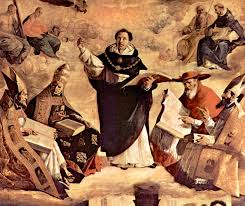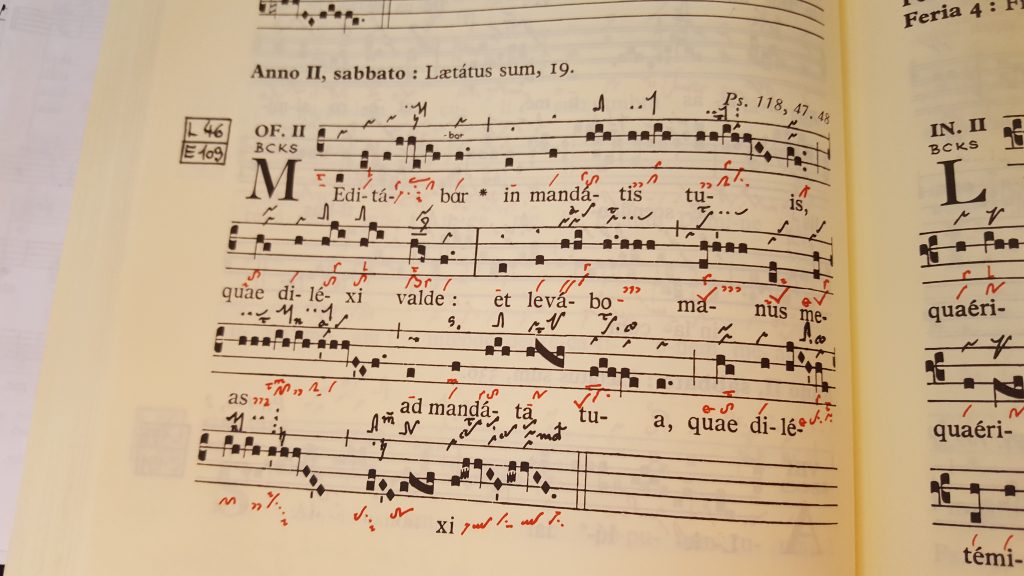Editor’s Note: St. Thomas Aquinas gave this brief sermon on December 2, 1268, at Bologna. It is short, simple, and direct, but speaks to eternal truths, as Christians endeavor to throw themselves upon Christ’s mercy, and move away from the darkness of the world. This version was taken from this site, which provides numerous sermons from early Church Fathers.
Romans 13:12: Let us throw off the works of the darkness and put on the arms of the light.
The Apostle, teacher of the Christians and leader in faith and truth, formulates this in this time of the gracious coming of our Lord with these words, or in these words, for two reasons: in order to stir up (1) a liberating abhorrence of all worldly stains and vices, as well as (2) an honorable love or pursuit of heavenly virtues. The first thing he does when he says: “Let us throw off the works of the darkness”; the second, when he adds: “and let us put on the arms of the light.”
(1) Concerning the first thing, note that the works and the vices of the world are called “dark,” and that therefore they must be thrown off. For there is in them an obvious lack of the wisdom that is needed in order to arrive at the truth, which we are to know. John 1:5 reads: “The light shines in the darkness and the darkness did not recognize it.” Furthermore, in darkness there is an obvious lack of foresight, which is needed for preventing evil. Wisdom 17:3 reads: “They are scattered by a dark veil of forgetfulness.”
(2) Concerning the second point, note that the works of the Gospel and the spiritual gifts of the Holy Spirit are for us the arms against the world, the flesh, and the devil, and that they make us stand firm in the light. Because through the effect of enlightening grace, which is like a light, they cause us to recognize the divine secret. In 2 Corinthians 4:6, it says: “Yet God, who has said that light will shine from the darkness, (has shone his light in our hearts in order to bring to light the knowledge of the glory of God which is on the face of Jesus Christ).” Because by the effect of reconciling grace, which is like a light, these [spiritual gifts] make peace when we wage war among ourselves [cf. Galatians 5:22–23]. Proverbs 6:23 says: “The commandment is a lamp and the law a light,” etc. Because through the effect of the grace of honesty, which is like a light, they make us beautiful, and in us, the whole universe. John 5:35 reads: “He was a burning and light-giving lamp.”










5